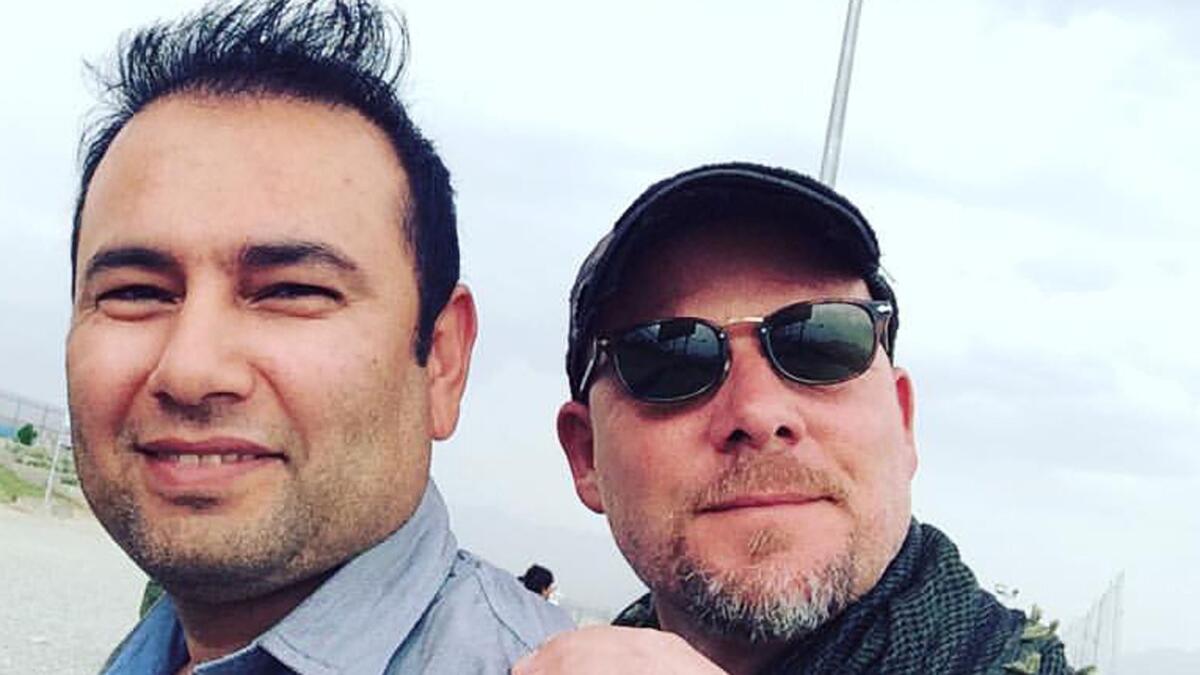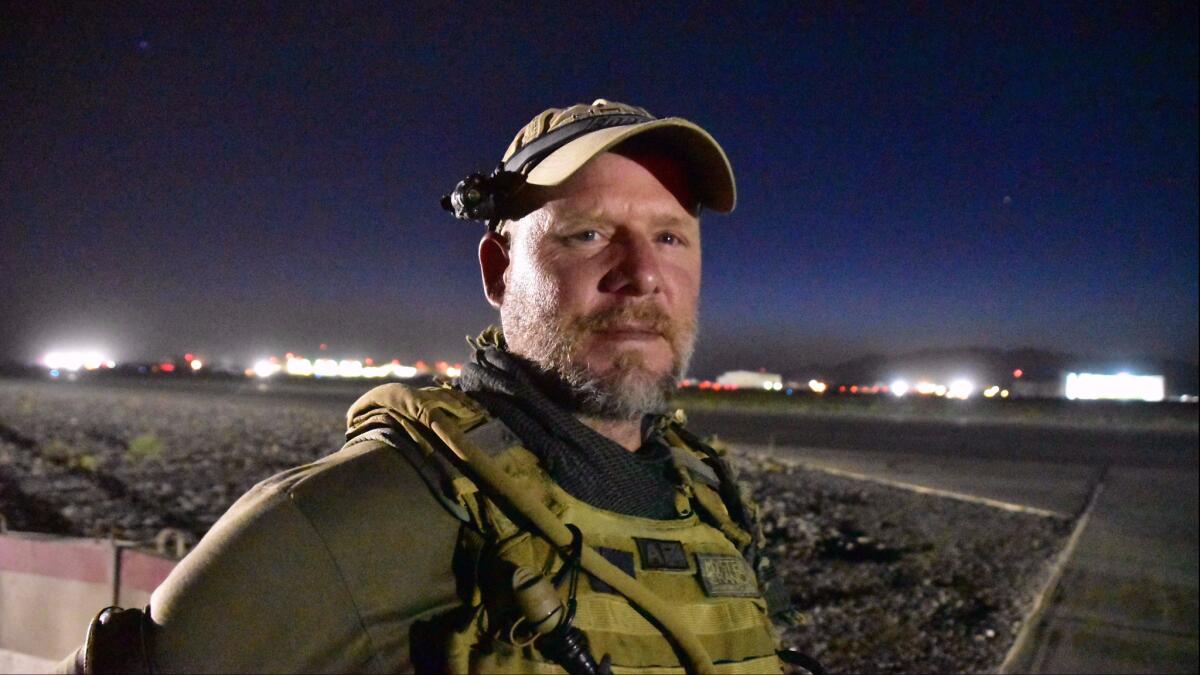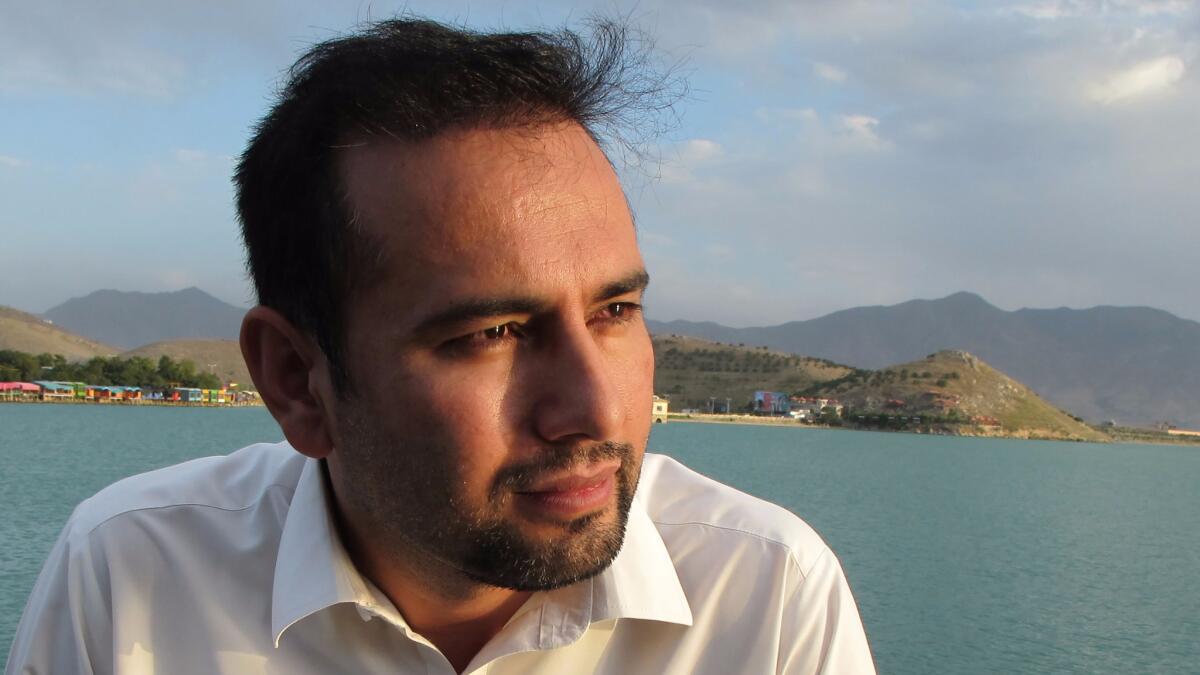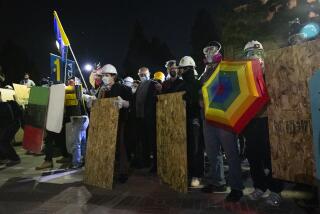Journalists mourn NPR photographers killed in Afghanistan

Reporting from KABUL, Afghanistan â The last time Zabihullah Tamanna spoke to his friend Sultan Faizy, he told Faizy he was about to head to Afghanistanâs southern Kandahar province. The 38-year-old photographer and married father of three would be there on assignment with NPR, along with three other journalists.
âStay safe,â Faizy said. âI will see you when you return.â
Faizy, a reporter, tried to call Tamanna over the next few weeks to check up on him, but with mobile phone service often shut off in conflict-ridden areas of southern Afghanistan, he could not reach him.
See the most-read stories this hour >>
Then came the late Sunday night call.
Faizy once worked for NPR and had recommended Tamanna to the news organization. Now he was being told that Tamanna and award-winning NPR photographer David Gilkey, 50, had been killed in Marjah, in Helmand province. The Afghan army convoy with which they were traveling came under fire from rocket-propelled grenades fired by Taliban militants, NPR said.
Gilkey is believed to be the first American journalist working for a news organization to be killed in the 15-year war in Afghanistan. The two other NPR journalists were unharmed. An Afghan soldier also was killed.
Faizy said NPR frequently praised Tamannaâs work.

âEvery time someone from NPR would see me, they would thank me for recommending Zabih,â Faizi said, using Tamannaâs nickname.
Remembrances poured in Monday for the two journalists, whose deaths added to the toll of the war in Afghanistan. Prior to Sundayâs attack, 27 journalists had been killed in Afghanistan since 1992, according to the Committee to Protect Journalists.
âIt is a great loss for the journalists, media community and the notion of freedom of expression in Afghanistan,â the Afghan Journalists Safety Committee said in a statement.
NPR Pentagon correspondent Tom Bowman, who was on assignment with Gilkey, said in an emotional Monday morning broadcast that Gilkey was âa real complete artist.â
âAny story you did, he made it better because of his pictures,â Bowman said.
Gilkey, who joined NPR in 2007 from Knight Ridder newspapers, made numerous trips to Afghanistan and other conflict zones. He won the George Polk Award, an Emmy Award and was named the still photographer of the year by the White House Photographers Assn. in 2011.
Bowman said their convoy came under machine-gun fire in an area of Helmand known to be a Taliban stronghold. Mortar rounds followed. Bowman and producer Monika Evstatieva were traveling in another vehicle, which turned around and headed back to the armyâs headquarters.

When they arrived, Bowman said he asked the Afghan general: âWhere are our friends?â They were told Gilkey and Tamannaâs armored Humvee, also driven by an Afghan soldier, was at another army checkpoint down the road.
After an hour or two passed, an Afghan army truck arrived with Tamannaâs body in the back. Bowman and Evstatieva were âcompletely distraught,â he said.
A short time later, another vehicle arrived at the base carrying Gilkeyâs body.
As Faizy waited for Tamannaâs body to be brought to Kabul, he said he was still reeling from the shock.
The Afghan journalists committee described Tamanna as one of the âmost experienced journalistsâ in the country. The son of a well known writer from the northern province of Faryab, he previously worked with Chinaâs Xinhua news service in Kabul, eventually running the agencyâs bureau in Afghanistan.
Join the conversation on Facebook >>
Friends said he left Xinhua in 2010 after he began to receive threats from unknown people for working with a Chinese company.
He freelanced as a reporter, photographer, producer and translator for local and foreign news outlets before starting work with NPR in 2014.
Tamanna had lately been working to establish a project he called Afghan Multimedia, an agency that would sell photos and videos to news organizations.
âHe was always smiling, always happy,â said Ahmed Buhari, a journalist who knew Tamanna for 15 years.
Latifi is a special correspondent. Staff writer Bengali reported from Mumbai, India.
MORE WORLD NEWS
What itâs like to live in the worldâs fastest growing major economy
Lancome draws outrage in Hong Kong after dropping pro-democracy pop singer
Trying to find U.S.-Japanese harmony amid the discord of a death in Okinawa
Follow @SBengali on Twitter for more news from South Asia
More to Read
Sign up for Essential California
The most important California stories and recommendations in your inbox every morning.
You may occasionally receive promotional content from the Los Angeles Times.











